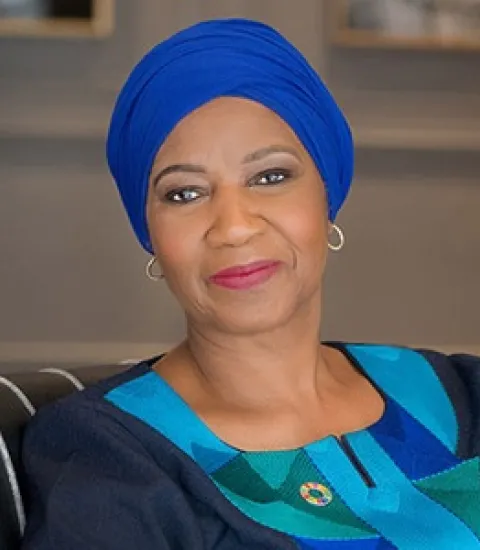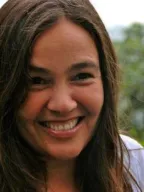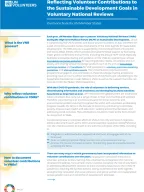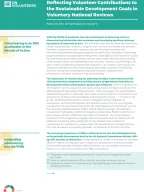
Special contribution: Can we value and equalize volunteering for all?
In her commentary for the Global Synthesis Report: Plan of Action to Integrate Volunteering into the 2030 Agenda, Phumzile Mlambo-Ngcuka, Under-Secretary-General of the United Nations and Executive Director of UN Women discusses how we can value and equalize volunteering for all.
Read the full entry below:
Across the world, volunteers are crucial to the survival and development of communities. Volunteering enables all people, including women and the most marginalized, to drive their own development by building critical skills, strengthening shared bonds and creating new connections.
Given the proper support, volunteering can also advance gender equality by altering perceptions of women’s roles in society, helping them to gain social capital and building their leadership capacity. For example, the HerStory network, a youth-led initiative supported by the UN Women Regional Office for the Arab States, brings together 300 youth volunteers from across the region to monitor mass media and social media, to gather gender-related stories of the impact of COVID-19 and to track and correct misinformation and harmful gender stereotyping on Arabic entries on Wikipedia.
However, the roles and activities of volunteers in the community can also reflect, and even perpetuate, gender inequalities. The State of the World’s Volunteerism Report 2018 showed that the majority of volunteer work is done by women, especially if only informal volunteering is taken into account. Globally, women already do on average three times as much unpaid care and domestic work as men. If performed for non-family or non-household members – for instance, in the form of making food, driving to medical appointments and babysitting without pay – it is classified as volunteer work.
This means volunteerism can reinforce gender roles and the social, political and economic inequalities already faced by women and girls.
To “reimagine volunteering” and realize gender equality for the Decade of Action, we need to think about how to redress these imbalances. This starts with increasing the value and recognition of volunteer roles traditionally performed by women. In responding to the COVID-19 crisis, for example, volunteers have delivered meals to neighbours, sewn facemasks and staffed helplines on domestic violence.
These contributions provide vital social lifelines and keep our economies running. In fact, the contribution of women to all types of care has been valued at US$ 11 trillion, equivalent to 9 per cent of global GDP.
Another important part of reimagining volunteering is addressing the social and gender norms that discourage men from taking on volunteer work and that limit the opportunities available to women.
This means enabling the participation of women in non-traditional roles and giving them a voice in decision-making spaces, so that outcomes are more inclusive and provide role models for women’s leadership. It also means encouraging men to volunteer for roles traditionally performed by women, such as providing emotional support for communities experiencing crisis or conflict.
At the local level, we need more programmes like the “School for Husbands” in Niger, which works to balance gender roles by increasing the responsibility and participation of men in health, hygiene and other issues in the community.
As with UN Women’s #HeForSheAtHome campaign – which has been encouraging men and boys to do an equal share of housework during the coronavirus pandemic and beyond – we also need men to do their fair share of volunteer work, recognizing these inequalities at the community level.
At UN Women, we have also seen how access to formal volunteering opportunities has enriched our own staff. We currently have 234 United Nations Volunteers working with us, equivalent to 8 per cent of our workforce.
Moreover, 64 per cent are national volunteers, bringing local expertise and helping to build national capacity. But we still need to do more to ensure that all types of volunteering, including local volunteering, can contribute to gender equality.
As we work together to rebuild stronger and more equal societies, including through UN Women’s Generation Equality campaign, let us recognize and value volunteer work as crucial to driving the global action we need, ensuring it is a shared endeavour and a sign of solidarity between all genders.






